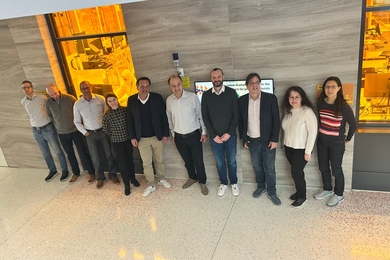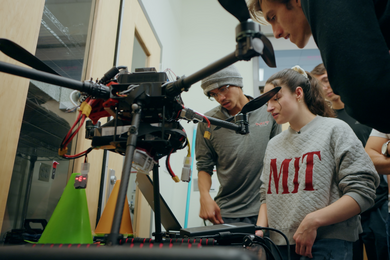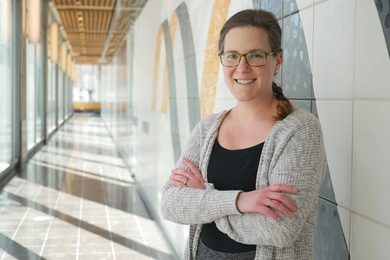Alan Guth, the V.F. Weisskopf Professor of Physics, and Professor Marvin Minsky of the Program in Media Arts and Sciences are two of the eight recipients of this year's Franklin Institute Awards.
The Franklin Institute Awards, one of America's oldest science award programs, recognizes a handful of the world's top scientists in cancer, artificial intelligence, computers, wireless communications, astronomy and chemistry with Benjamin Franklin Medals and Bower Awards.
Besides Professors Guth and Minsky, the 2001 laureates are medical researcher Judah Folkman, chemist K. Barry Sharpless, earth scientist Rob Van der Voo and engineer Bernard Widrow. Irwin Mark Jacobs, whose work in compressing and transporting messages has become standard technology in cellular telephones, and Paul Baran, whose early concepts in connected communication nodes led to the predecessor of the modern-day Internet, will receive Bower Awards.
Professor Minsky is receiving the Franklin Medal in Computer and Cognitive Science for his work on the development of a conceptual model of the mind that has guided additional research on artificial intelligence, deepened understanding of the nature of human intelligence and broadened awareness of what a machine can do.
Professor Guth is receiving the Franklin Medal in Physics for proposing the revolutionary concept, now at the heart of current work in the understanding of the early universe, that the universe underwent a rapid expansion in the first stages of the Big Bang. His concept has provided an explan- ation of several long-standing problems in cosmology, most notably the universe's apparent flatness and the observation that cosmic background radiation is the same in all directions.
Founded in honor of Benjamin Franklin, the Franklin Institute in Philadelphia is a center for science education and development.
A version of this article appeared in MIT Tech Talk on January 31, 2001.





